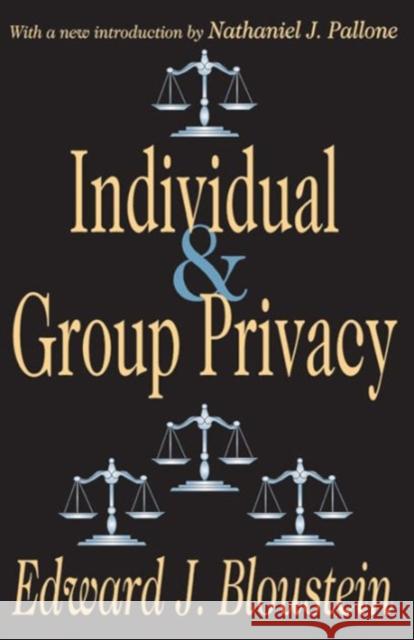Individual and Group Privacy » książka
Individual and Group Privacy
ISBN-13: 9780765809667 / Angielski / Miękka / 2002 / 194 str.
Individual and Group Privacy
ISBN-13: 9780765809667 / Angielski / Miękka / 2002 / 194 str.
(netto: 228,51 VAT: 5%)
Najniższa cena z 30 dni: 216,55
ok. 16-18 dni roboczych.
Darmowa dostawa!
Edward J. Bloustein was the president of Rutgers University, and a distinguished scholar of the law. The four essays on privacy that comprise this book were completed over a thirteen-year period, and the development of the author's thinking parallels increasing thoughtful concern about privacy in the larger society. This development is especially appropriate to discussions of privacy and the -right to know- in the current era. The author analyzes individual and group privacy as legal concepts and examines the relationship of each to the legal right of the public to be informed about, and of a publisher to publish, private or confidential information. In exploring a series of problems associated with privacy and the First Amendment, Bloustein defines individual and group privacy, distinguishing them from each other and related concepts. He also identifies the public interest in individual privacy as individual integrity or liberty, and that of group privacy as the integrity of social structure. The legal protection afforded each of these forms of privacy is illustrated at length, as is the clash between them and the constitutional guarantees of the First Amendment and the citizen's general right to know. In his final essay, Bloustein insists that the concept of group privacy is essential to a properly functioning social structure, and warns that it would be disastrous if this principle were neglected as part of an overreaction to the misuse of group confidences that characterized the Nixon era. The new opening by Nathaniel Pallone provides a fresh context for evaluating the intellectual as well as organizational contribution of Bloustein.











